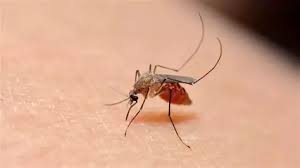Northern Mali is facing an unprecedented health crisis, marked by a worrying outbreak of malaria and diphtheria.
The intensity of the rainy season, especially this year, has led to flooding in Mali. These events have been compounded by an explosion of infectious diseases in areas already weakened by insecurity. Since the beginning of the year, health authorities have recorded a resurgence of cases in the northern regions of the country.
According to the latest figures, nearly 13,000 new cases of malaria were recorded between September 21 and 27, an increase of 88 percent compared to the previous week. This outbreak is accompanied by a significant increase in deaths, with 59 deaths in the north since the beginning of the year, almost double the number in 2023. These figures include severe forms of the disease, with many patients suffering from acute respiratory distress.
The situation in northern Mali is exacerbated by already critical structural factors. The number of internally displaced persons (IDPs) has increased as they flee the ongoing violence caused by insecurity. These population movements make access to care difficult, as local health structures are largely dysfunctional. There are acute shortages of medicines, medical staff and basic equipment. The absence of humanitarian organisations in certain areas makes it almost impossible to care for patients.
The remaining health centers are struggling to meet the growing needs of the displaced and the local population.
In Kidal, for example, the technical platform is so limited that serious cases of malaria cannot be treated effectively. Cheick Ag Oufene, administrator of a health center in the region, expressed his concern about this situation, which he described as “very alarming. For his part, Mahamadou Sangaré, a doctor in the town of Aguelhok, confirmed that malaria has been wreaking havoc since the start of the rainy season.
In the context of this humanitarian crisis, several appeals for emergency assistance have been launched.
Prevention efforts, such as the distribution of impregnated bed nets and community awareness campaigns, have been slowed by security tensions and logistical difficulties. According to many experts, the Covid-19 pandemic has also diverted vital resources, contributing to delays in the implementation of infectious disease prevention campaigns.
In this context, calls are being made for mobilization to respond to this public health emergency. Financial contributions as well as donations of medical equipment, medicines and vaccines are urgently needed to contain this epidemic that threatens thousands of lives.
MD/sf/te/lb/as/APA


